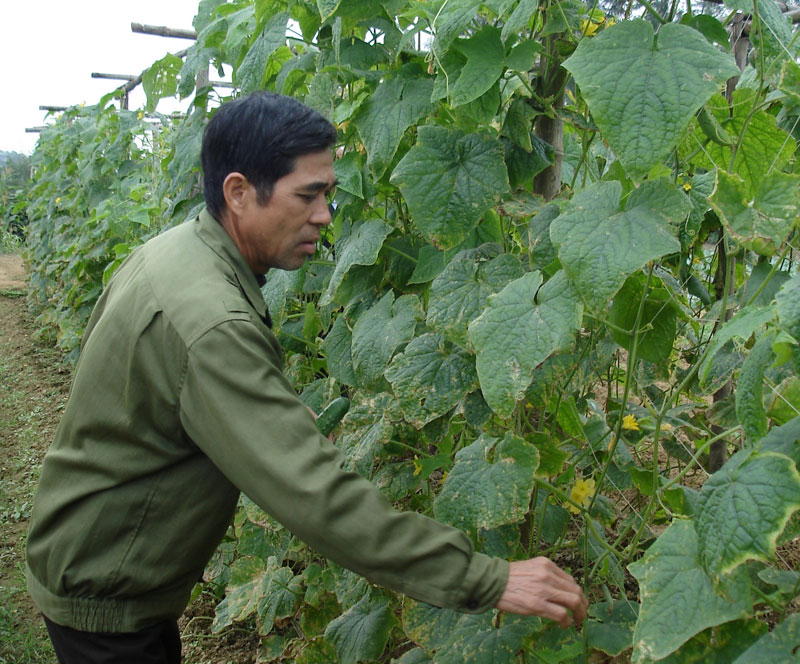



Farmers in Nhuan Trach commune (Luong
Son district) chooses organic vegetables as main crops
Following general orientations, Luong Son district’s townships and
communes have carried out suitable policies, thus helping create a combined
strength to boost the district’s agricultural economy.
After five years (2013-2017) of restructuring, the
agro-fishery-forestry sector enjoys an average growth rate of 4.13 percent a
year, with the production value per hectare increasing from 87 million VND per
year in 2013 to 168.9 million VND per year in 2017, or an annual growth rate of
18.05 percent. Thanks to improved production efficiency, per capita income in
the agricultural sector has increased. The poverty rate in 2017 stood at 4.83
percent, down 2.53 percent from that of 2013.
Production and consumption chains have been formed, while models with
high economic efficiency expanded, including green-skin and Dien grapefruit
planting model with revenue of over 350 million VND a hectare, longan growing model
with revenue of 250 million VND a hectare, organic vegetable model with income
of over 300 million VND per hectare.
The district’s agricultural economy has shifted towards improving
added value and sustainable development. Several positive results are seen when
comparing with a set of criteria for the supervision and assessment of
agricultural restructuring. Notably, the average growth rate during 2013-2017
reached 4.13 percent a year, higher than the target set for the northern
mountainous region (3 percent a year).
The production value per hectare rose to 168.9 million VND per year, and revenue
from husbandry increased by 5.37 percent a year, both higher than the region’s
targets. The rate of skilled farmers hit 46.9 percent, much higher than the
region’s goal of 27 percent.
In addition, Luong Son is the province’s leading locality in terms of new-style rural area building. To date, the district has 10 out of 19 communes achieving all new-style rural area criteria, or 52.6 percent – the highest rate compared with other localities in the province./.